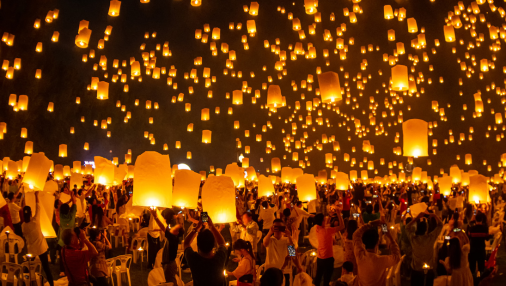Why Do We Celebrate All Festivals and Their Reasons
Festivals are the soul of human culture. They are not just days of joy and holidays from routine life but hold deep meanings, connecting us with traditions, beliefs, communities, and values. Every festival—whether religious, cultural, or social—carries a unique significance. They remind us of our roots, celebrate life’s victories, honor nature, and encourage togetherness. In every corner of the world, festivals reflect humanity’s way of expressing gratitude, happiness, and hope.
1. Festivals Preserve Culture and Traditions
One of the main reasons we celebrate festivals is to preserve our cultural and traditional heritage. For example, Diwali celebrates the return of Lord Rama, symbolizing the triumph of light over darkness. Christmas marks the birth of Jesus Christ, reminding people about love and compassion. Similarly, Eid brings the lesson of sacrifice and unity. Each of these festivals tells a story and passes it on to the next generation. Without festivals, many of these age-old traditions would slowly fade away.
2. Festivals Strengthen Family and Community Bonds
In today’s fast-paced life, people hardly get time to spend with loved ones. Festivals bring everyone together. They create opportunities for families to gather, share meals, exchange gifts, and relive childhood memories. Communities also come together through local events, fairs, and cultural programs. For example, during Holi, people celebrate with colors, forgetting past grudges and renewing relationships. These occasions strengthen the social fabric and keep communities united.
3. Festivals Teach Important Values and Lessons
Behind every festival, there is a moral lesson. Raksha Bandhan teaches us about the bond of protection between brothers and sisters. Navratri symbolizes women’s power and devotion to the goddess. Thanksgiving is about gratitude for the harvest and blessings. By celebrating these festivals, people learn values like sacrifice, unity, gratitude, respect, and forgiveness. These teachings are timeless and guide us in living a balanced life.
4. Festivals Bring Joy and Positivity
Festivals are also celebrated for their joyous nature. They bring happiness, music, dance, decorations, and delicious food into our lives. The atmosphere during festivals is filled with positivity. Lights, colors, and celebrations uplift the human spirit. Psychologists believe that festivals reduce stress, bring hope, and make people feel more connected and satisfied. For example, the lights of Diwali are believed to ward off negativity and welcome prosperity.
5. Festivals Connect Us With Nature
Many festivals around the world are directly linked to nature, harvest, and seasons. For instance, Makar Sankranti celebrates the harvest and transition of the sun. Baisakhi in Punjab and Pongal in Tamil Nadu honor farmers and the agricultural cycle. Earth Day and other modern festivals remind us to protect the environment. Celebrating these occasions helps people respect natural resources and understand the importance of living in harmony with nature.
6. Festivals Encourage Charity and Social Service
Festivals often inspire people to give back to society. During Eid al-Adha, charity in the form of food and donations to the needy is considered essential. Christmas is a time when people engage in acts of kindness and giving. In India, festivals like Diwali see communities distributing sweets and clothes to the underprivileged. These traditions promote compassion, humanity, and equality in society.
7. Festivals Boost the Economy
Another important reason to celebrate festivals is their economic impact. They provide a boost to local markets, small businesses, artisans, and tourism. From festive shopping to travel, festivals create jobs and income for millions of people. For example, the Indian retail market sees massive growth during Diwali, while global tourism rises around Christmas and New Year. Thus, festivals contribute not just emotionally but also economically to human society.
8. Festivals Promote Unity in Diversity
In a country like India, where people follow different religions and cultures, festivals play a vital role in promoting unity. When people of one community join the celebrations of another—such as Hindus enjoying Eid delicacies or Muslims lighting Diwali lamps—it creates mutual respect. This spirit of “unity in diversity” strengthens harmony and peace among communities.
Conclusion
Festivals are not just about rituals or traditions; they are about the deeper meaning of life. They remind us to be grateful, spread joy, respect culture, protect nature, and help the needy. They bring families closer, promote peace, and spread positivity in society. Whether it is Diwali, Holi, Christmas, Eid, Baisakhi, Pongal, or any other celebration, the essence of every festival is the same—celebrating humanity and togetherness.
So, the reason we celebrate all festivals is to keep alive our culture, to learn life’s values, to unite communities, and to cherish the beauty of life. Festivals are, indeed, the colors of human existence.

